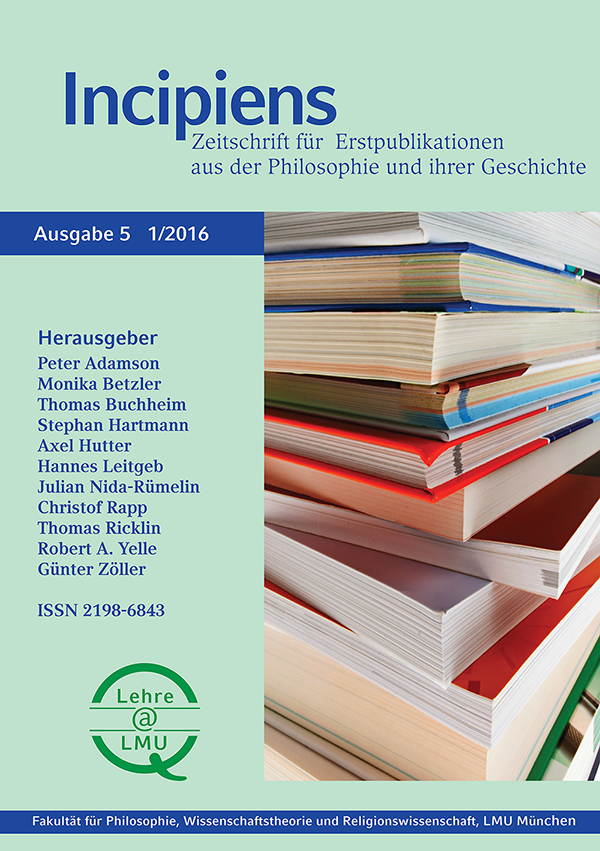Der Begriff des Leidens in Theodor W. Adornos ‚Negative Dialektik‘
Abstract
Dieser Artikel macht es sich zur Aufgabe, die Verwendung des Leidbegriffs im Werk Negative Dialektik von Theodor W. Adorno zu analysieren und extrapoliert dabei dreierlei Bedeutungsebenen: Die Objektivität des Leidens wird vorausgesetzt. Das hermeneutische Projekt untersucht zuerst das Verhältnis von Leiden und (philosophischem) Denken und Erkenntnis. In Gang gesetzt wird dieses Leiden durch die Inkongruenz von Begriff und Sache. Diese Form des Leidens wird zweitens dem fundamentaleren physischen Leid gegenübergestellt. Genau an dieser Stelle erfolgt der theoretische Umschlag von einem dialektischen in ein undialektisches Verfahren. Wo das Leiden im und am Denken noch einen dialektischen Umschlag haben könnte, kann das somatische Leid nicht dialektisch gewendet werden. Dieses Leiden geht dem Denken voraus, nicht als Invariante, sehr wohl aber als Existential. Das Leiden wird ferner als Produkt der falschen Gesellschaft und der ungerechten Zustände expliziert. Die Analyse mündet abschließend in der Frage nach der Abschaffung des Leids. Die Idee seiner Abschaffung ist dem Leiden als Imperativ inhärent.
This article sets itself the task of analyzing the use of the term suffering in Negative Dialectics by Theodor W. Adorno and extrapolates thereby three different levels of meaning: The objectivity of suffering is presupposed. The hermeneutic project first examines the relation of suffering and (philosophical) thinking and cognition. This suffering is initiated by the incongruence of conception and object. Secondly, this form of suffering is confronted with the more fundamental physical suffering. At this point exactly, the theoretical change of a dialectical into an undialectical method takes place. Where the suffering in and due to thinking could still have a dialectical change, the somatic suffering cannot be turned dialectically. This suf-fering precedes thinking, not as an invariant but as an existential. Suffering is further explicated as a product of false society and an unjust status quo. The analysis finally leads to the question of the abolition of suffering. The idea of its abolition is inherent to the suffering as an imperative.

